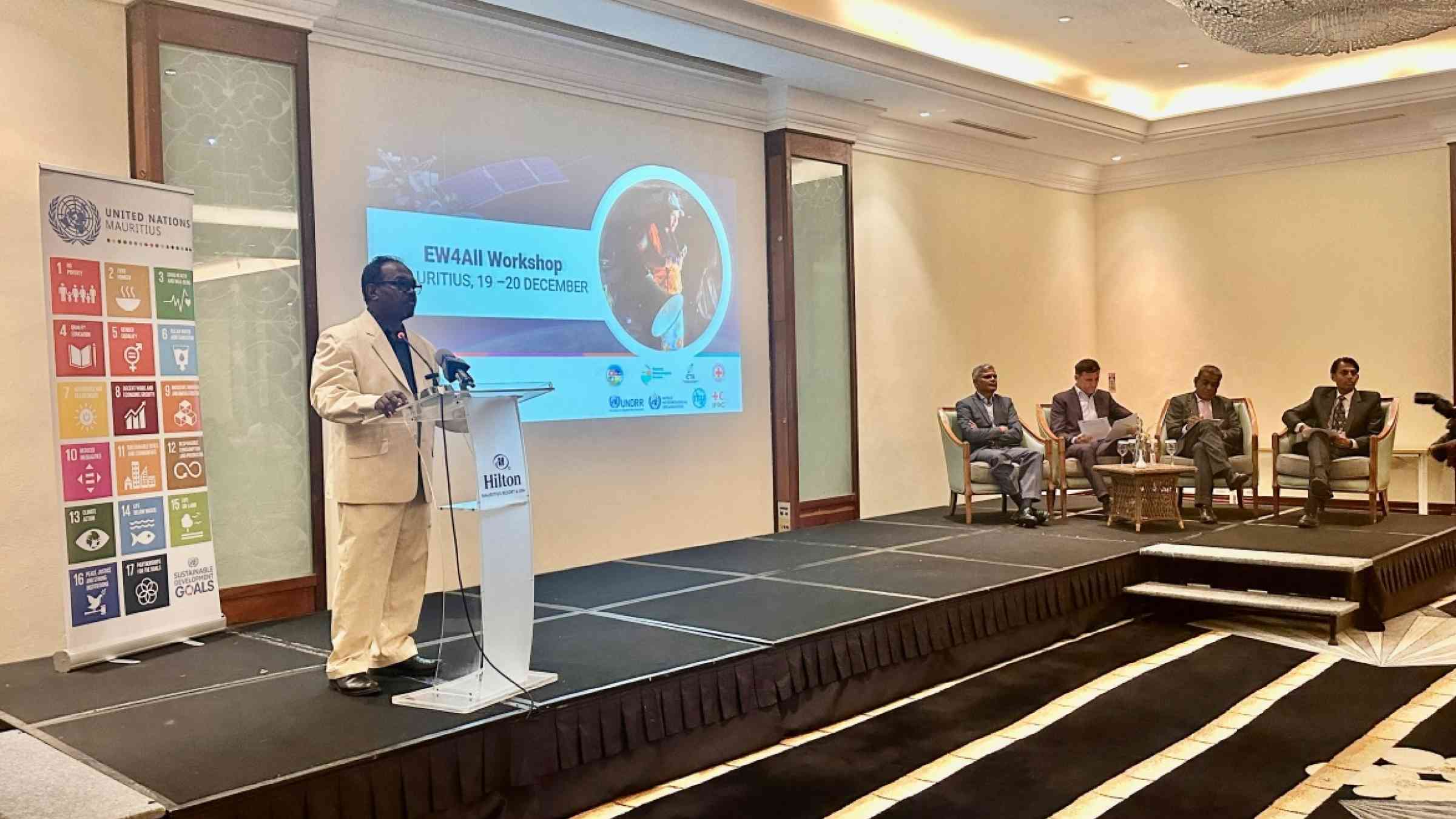United Nations Secretary-General’s Early Warnings for All initiative launched in Mauritius

The United Nations Secretary-General’s Early Warnings for All (EW4All) initiative was launched in Mauritius in December 2023 during a two-day event with key stakeholders.
In his opening speech, Dr. Kawol, Senior Chief Executive of the Ministry of Local Government and Disaster Risk Management, emphasized an inclusive, intersectional, and whole-of-society approach to better manage the effects of hazards and risks that Mauritius is subjected. Mauritius’ commitment towards early warning can be observed through its National Disaster Risk Reduction and Management Action Plan 2020-2030 and Strategic Framework 2020-2030 that are both aligned with the Sendai Framework for Disaster Risk Reduction.
During the event, representatives from relevant ministries, national and local government agencies, development partners as well as civil society organizations presented the current status, advancements, and challenges that their respective organizations face when implementing early warning systems in Mauritius.
Participants undertook a gap analysis exercise, drawing from prior assessments, to identify the critical gaps as well as priority needs for support across the four early warning pillars, namely 1) Disaster Risk knowledge; 2) Detection, observations, monitoring analysis and forecasting of hazards; 3) Warning, dissemination and communication; and 4) Preparedness and response capabilities. They agreed on a coordination mechanism and on developing a roadmap, next steps, and recommendations for the EW4All initiative’s implementation.
Mauritius is prone to cyclones, sea-level rise, flooding, high waves and storm surges. Capacities to better manage and get ahead of hazardous events are needed to protect and increase the resilience of individuals and communities. EW4ALL brings together the United Nations system, governments, civil society, development partners and the private sector to enhance collaboration and accelerated action to address gaps and deliver people-centered, end-to-end multi-hazard early warning systems that leave no one behind.